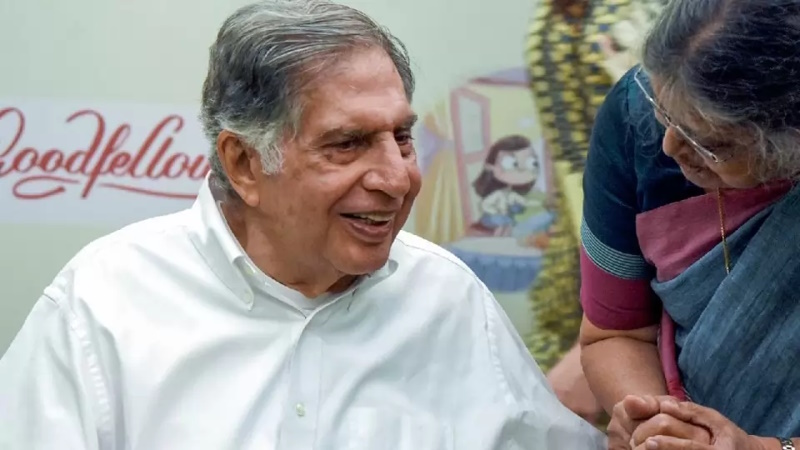 Renowned Indian industrialist Ratan Tata, who transformed the Tata Group into a global powerhouse, has passed away at the age of 86. His passing has garnered tributes not only from across India but also from international media outlets like Al Jazeera, The New York Times, The Guardian, and Dawn. Major publications have praised his leadership, highlighting his impact on the world stage.
Renowned Indian industrialist Ratan Tata, who transformed the Tata Group into a global powerhouse, has passed away at the age of 86. His passing has garnered tributes not only from across India but also from international media outlets like Al Jazeera, The New York Times, The Guardian, and Dawn. Major publications have praised his leadership, highlighting his impact on the world stage.
British public broadcaster BBC paid homage to Ratan Tata, describing him as a “modest” tycoon. The headline of their obituary reads, “Ratan Tata, the ‘modest’ Indian tycoon.”
The BBC noted that Ratan Tata led the Tata Group for over two decades, overseeing more than 100 companies under its umbrella, from salt to software. The conglomerate employs over 660,000 people and generates annual revenues exceeding $100 billion. Peter Casey, the author of The Story of Tata, highlighted how the company’s unique philosophy blends capitalism with philanthropy, focusing on improving lives through business.
Al Jazeera described Ratan Tata as a “titan of Indian business,” pointing to one of his most ambitious projects—the Tata Nano. In 2009, Tata Motors shook the global automobile industry by launching the Tata Nano, a compact car priced around Rs 1 lakh (roughly $2,000 at the time), which was marketed as the “People’s Car.” It was designed to provide affordable, safe transportation to millions of middle and low-income families in India. Although production of the Nano ceased in 2018 due to lower-than-expected sales, the project remains one of Tata’s boldest endeavors.
The New York Times referred to Tata as the leader of a powerful family that turned the Tata Group into an international force. Under his leadership, the conglomerate acquired several iconic global brands, including Tetley Tea and Jaguar Land Rover. The newspaper noted that despite his business success, Tata preferred to remain out of the public eye, portraying a shy and introverted persona.
The New York Times also touched on a major controversy in Tata’s career, referencing the long legal dispute that arose after he convinced the Tata Group’s board to remove his chosen successor. This scandal attracted significant media attention, adding a complex chapter to his legacy.
The Guardian highlighted Ratan Tata’s Padma Vibhushan award in 2008, recognizing his immense contribution to industry. Meanwhile, Pakistan’s Dawn newspaper credited Tata for placing the Tata Group firmly on the global stage through key acquisitions. The publication further detailed his efforts to modernize the company by implementing a retirement age for top executives and promoting younger talent within the organization.
Ratan Tata’s influence on global business and his vision for inclusive growth have left an indelible mark on the industry. His commitment to innovation, ethical business practices, and philanthropy continues to inspire business leaders worldwide.




